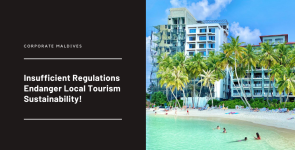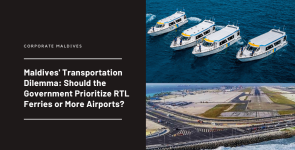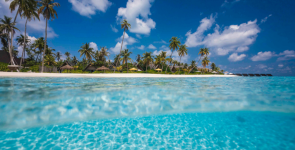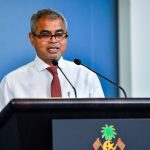
It is widely known that the Maldives suffers from a significant problem with corruption, with no agency responsible for taking action against those involved in its planning and execution. The country ranked 137th out of 180 on Transparency International’s 2021 Corruption Perceptions Index, indicating the prevalence of corruption.
A Change of Government and Corruption
In 2008, the Maldives introduced a new constitution and system of government to replace the previous dictatorship. At that time, corruption was rarely discussed, as the focus was on ending long-term one-person rule, nepotism, human rights violations, and the torture of political prisoners. The people opted for a democratic multi-party system, believing it would best reflect their desire for human rights and democratic consultation.
Since then, no agency has been able to account for the amount of property and money lost as a result of fraudulent activity, as the documents are not always correctly maintained. Various government officials have continued the significant scams from the previous thirty years of Maumoon’s rule.
The MMPRC Scandal
One of the most significant recent corruption cases in the Maldives was the MMPRC scandal, which was perpetrated by a state-owned company, the Ministry of Tourism, other state institutions, and private individuals. The scam involved the distribution of lagoons and islands controlled by the state to various parties at very low prices, resulting in significant financial losses. The value of the total damage has not yet been recovered, as the lagoons and islands involved are priceless. In the 21st century, uninhabited islands are among the most valuable assets in the world.
Although the Asset Recovery Commission was dissolved after the government’s term expired, no efforts have been made to recover the lagoons and islands among the various parties. This is partly due to concerns about investor confidence, as some of the islands have been converted into resorts, and the return of these assets to the state may deter investors.
A special court should be established to investigate significant thefts committed by government leaders, with foreign judges involved in the public trials. Such a move would serve as a warning to those who might follow in their footsteps. Fairness and impartiality should not be a reason to lose investor confidence, and the return of the assets to the state would also teach investors a valuable lesson.
Challenges in the Elimination of Corruption
The issue of corruption in the Maldives has been addressed in the UN report “Anti-Corruption in the Maldives: Progress and Challenges”. However, the report acknowledges that there are significant obstacles to eliminating corruption in the country. These include the lack of government efforts to prevent corruption, the absence of transparency or two-sided policies in the administration of government, and the impunity granted to those who engage in corrupt practices.
For instance, this year, the Maldivian government has paid almost MVR 100 million in compensation to various parties, but no government agency has disclosed the details of these payments. This lack of transparency is one example of the challenges faced in addressing corruption.
Despite the ruling party’s promises to repeal laws that facilitate corruption, including the Right to Assembly Act and the Finance Act, the government has not followed through on these commitments. The UN and Transparency International reports indicate that corruption primarily involves the heads of government offices, who engage in various corrupt practices such as abuse of power and influence, bribery, nepotism, and procurement fraud. This has resulted in serious organized crimes such as drug trafficking, human trafficking, and money laundering.
As a consequence, the government has spent MVR 1.6 billion in compensation over the past four years alone, mainly due to the cancellation of contracts that were executed illegally. However, there is no state institution or office to hold those involved accountable for the damages incurred by the state.
Recently, the Auditor General’s Office (AGO) released a report on the cancellation of the agreement with Noor Islamic International Pvt Ltd (NII) in 2017 to operate the Kulhudhuffushi Regional Hospital. These acts of political rivalry and corruption have been executed using political power and do not reflect the government’s commitment to serving the people.
It Remains Rampant Everywhere in the Maldives
Corruption is pervasive across all sectors of Maldives. In an effort to address this issue, the Anti-Corruption Commission, Transparency Maldives, and the police organized a joint anti-corruption conference last year, inviting police, civil society groups, and government ministries to participate. However, corruption has become a normalized aspect of the system. The Anti-Corruption Commission reports that corruption is prevalent in government and government-owned companies, even in small matters.
Companies also rig the tender process by changing the specifications to favour certain bidders, including paper companies or those created solely for a specific tender. The ACC acknowledges that corruption is rampant in the payment of contractors, with expedited payments made to certain companies or individuals in exchange for a cut to the company’s management or owners.
International organizations such as the UN, World Bank, and civil society groups have repeatedly highlighted the extent of corruption and recommended measures to curb it. Despite this, the President has stated that identifying the causes of corruption will take time, suggesting that the issue will not be resolved quickly.
Those in power are aware of the widespread and harmful effects of corruption and how to stop it, but they remain silent about the damage they will suffer if they take action. By feigning ignorance, they can avoid responsibility for tackling the issue. Ultimately, it is up to the people to decide how to address this pervasive problem.











